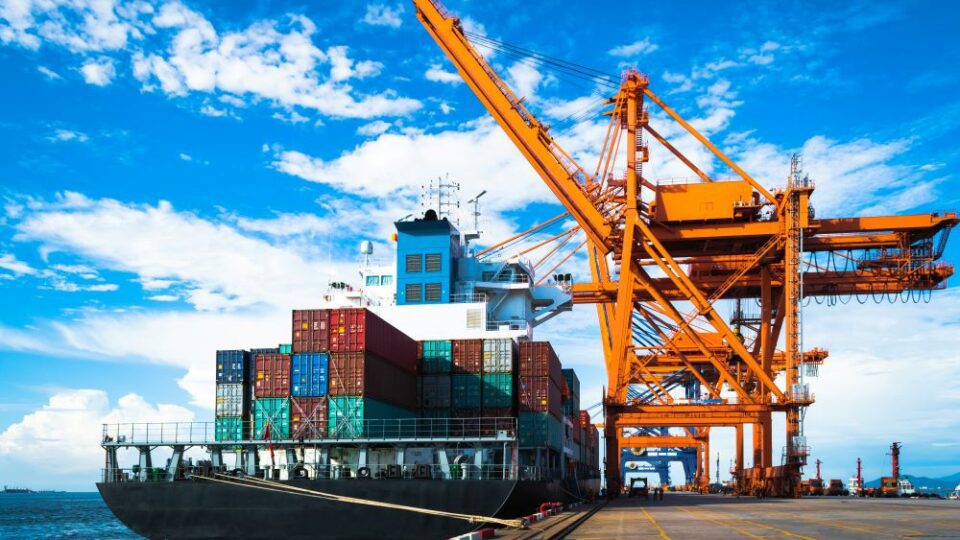[Update as of Oct. 4, 2024] The strike that threatened to snarl supply chains has been postponed until at least Jan. 15, 2025, with the International Longshoremen’s Association (ILM) union and the United States Maritime Alliance (USMX) agreeing to return to negotiations. The resumption of work at East Coast and Gulf Coast ports was reportedly prompted by a new offer from the USMX that would raise dockworkers’ wages 62% over a six-year contract, according to The New York Times.
“The decision to end the current strike and allow the East and Gulf Coast ports to reopen is good news for the nation’s economy,” said Matthew Shay, President of the NRF in a statement. “It is critically important that the International Longshoremen’s Association and United States Maritime Alliance work diligently and in good faith to reach a fair, final agreement before the extension expires. The sooner they reach a deal, the better for all American families.”
Original story from Oct. 1, 2024 begins –
The long-dreaded strike of East Coast ports by the International Longshoremen’s Association (ILM) against the United States Maritime Alliance (USMX) began at 12:01 a.m. ET today, raising concerns about the potential economic impact of a prolonged work stoppage.
The union, which represents approximately 45,000 workers, has not gone on strike since 1977, when a walkout stalled container shipping for six weeks, according to the New York Times. A strike could cost the economy from $4 billion to $5 billion per day, according to economists’ estimates, as well as potentially raise the prices of consumer goods if it goes on for an extended period.
Industry associations including the Retail Industry Leaders Association (RILA) and the National Retail Federation (NRF) have called for fast action to address the shutdown. Approximately 60% of U.S. container shipments go through East Coast and Gulf of Mexico ports, including the Port of New York and New Jersey, the country’s third-busiest, as well as fast-growing ports in Virginia, Georgia and Texas. West Coast ports are not affected since their workers are covered under a separate contract.
“NRF urges President Biden to use any and all available authority and tools — including use of the Taft-Hartley Act — to immediately restore operations at all impacted container ports, get the parties back to the negotiating table and ensure there are no further disruptions,” said Matthew Shay, President and CEO of the NRF in a statement.
“After more than two years of runaway inflationary pressures and in the midst of recovery from Hurricane Helene, this strike will result in further hardship for American families,” Shay added. “The administration must prioritize our economy — and the millions of American who depend on it for their livelihood and wellbeing — and intervene immediately to prevent further hardship and deeper economic consequences.”
A prolonged strike would have the biggest impact on prices, according to Lauren Saidel-Baker, an economist at ITR Economics. “The U.S. dockworker strike across the Gulf and East coasts could snarl supply chains, setting up a scenario reminiscent of the pandemic-era logistics crisis,” said Saidel-Baker in comments shared with Retail TouchPoints. “While shortages and delays are possible, the greatest economic impact will be in pricing, with greater inflationary impacts more likely the longer the strike persists.”
IRT Economics forecasts disinflation for the remainder of 2024 but sees a resurgence occurring in 2025, and a long-lasting port strike would create an “upside risk to pricing in addition to the inflation already written into economic fundamentals,” Saidel-Baker said.
Holiday Goods Deliveries Unlikely to be Affected
“As logistics leaders, retailers have already activated contingency plans, including rerouting shipments, to ensure consumer goods reach their final destination with limited disruption or extra costs,” said Brian Dodge, President of RILA in a statement. “Shoppers can rest assured holiday merchandise will be on shelves; however, the longer this work stoppage goes on, the harder it will become to shield customers from its effects.”
Like the NRF, RILA wants the U.S. government to take a hand in ending the strike. “RILA urges ILA and USMX to return to the negotiating table and remain there until a deal is reached which ensures these vital supply chain gateways are fully operational to serve the American public,” said Dodge. “However, given the ILA’s current posture, we implore the Biden-Harris administration to stay engaged and consider all options to keep the U.S. economy open for business.”
Ironically, the supply chain nightmare that was COVID could lessen the negative impact of this strike, according to Saidel-Baker: “While recent memory of one supply chain disruption makes this strike less palatable for the American consumer, the very fact of that event has prepared many businesses for a recurrence,” she noted. “The 2020 disruption presented unforeseen challenges but encouraged many firms to diversify their supply chain and seek backup sourcing: preparation that will likely soften the blow of the dockworker strike.”













